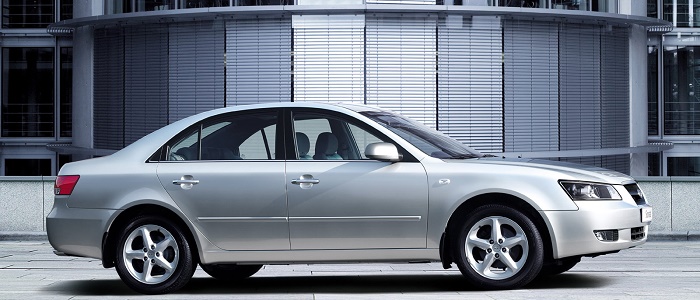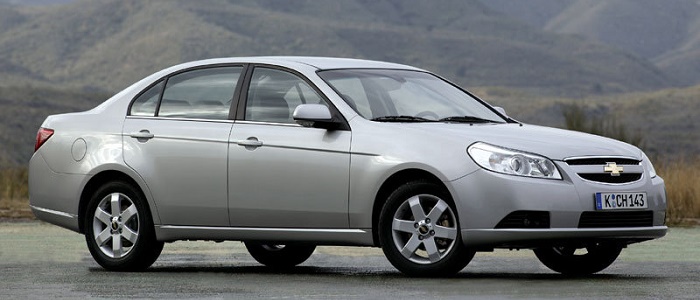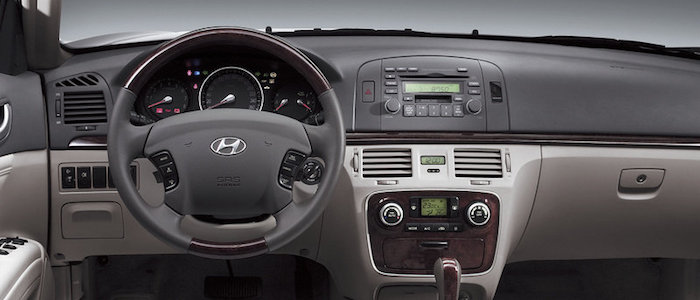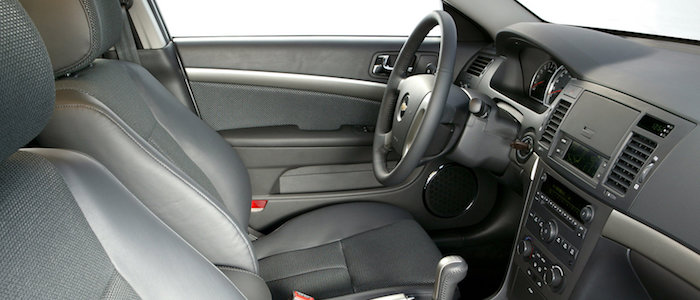Compare two cars
Compare any two cars and get our Virtual Adviser™ opinion
Marketing
Dimensons & Outlines
Engine
Performance (manual gearbox)
Performance (automatic gearbox)
Expenses
Virtual Adviser's™ opinion
We are here considering two somewhat similar cars, but we can't deny some of the obvious differences. For a start, they are not even classified under the same segment, with the Hyundai being a luxury car and the Chevrolet representing large family car vehicle class. The first one has a Hyundai-engineered powertrain under the hood, a 4-cylinder, 16-valves 140hp unit, while the other one gets its power and torque from a 4-cylinder, 16-valves 150hp engine designed by VM Motori.
SafetyThe fact that the Hyundai got tested by the European New Car Assessment Programme (Euro NCAP), while the other contender didn't, offers a slight advantage, as the 4-star rating is better than none. Still, apart from the official crash test results there are other things we need to be aware of. The first vehicle is a luxury car and that gives it a marginal advantage over the large family car competitor, at least that's what statistics show. Furthermore, when it comes to weight, a factor that most people underestimate, the Korean car offers a marginal difference of 2% more metal.
ReliabilityManufacturers have been building their reliability reputation for decades now and, generally speaking, it appears that both brands display similar results in faults and breakdowns, all the models observed together. That's the official data, while our visitors describe reliability of Hyundai with an average rating of 4.5, and models under the Chevrolet badge with 4.2 out of 5. Some independent research have also placed Sonata as average reliability-wise, and Epica is more or less at the same level.Above it all, drivers of cars with the same engine as the Korean car rank it on average as 4.7, while the one under the competitor's bonnet gets 4.5 out of 5.
Performance & Fuel economyChevrolet is undoubtly more agile, reaching 100km/h in 1 seconds less than its competitor. Still, it lacks the power to win the top speed competition, topping at 200 kilometers per hour, 3km/h less than the other car. When it comes to fuel economy things look pretty much the same for both cars, averaging around 6.1 liters of fuel per 100 kilometers (46 mpg), in combined cycle.
Verdict
Hyundai appears just a bit more reliable, although the difference is truly marginal. The most important thing when deciding between any two vehicles should always be safety, both passive and active. In my opinion, everything taken into account, the Korean car beats the other contender by far, making it the best choice without even considering other things. From there things take a different direction, with Chevrolet being considerably quicker, thus putting more smile on driver's face. Fuel consumption is more or less the same. It's not difficult to say then that if I'd need to make a choice, it would definitely be the Hyundai. Nevertheless, let's not forget that people have different preferences and needs, so what really counts is your personal feel. I'm only here to help. Also, you could use the oportunity to find out which car, everything taken into account, would be the perfect choice for you in the eyes of the virtual adviser™, out of 12.000+ vehicles we currently have in our database.


































